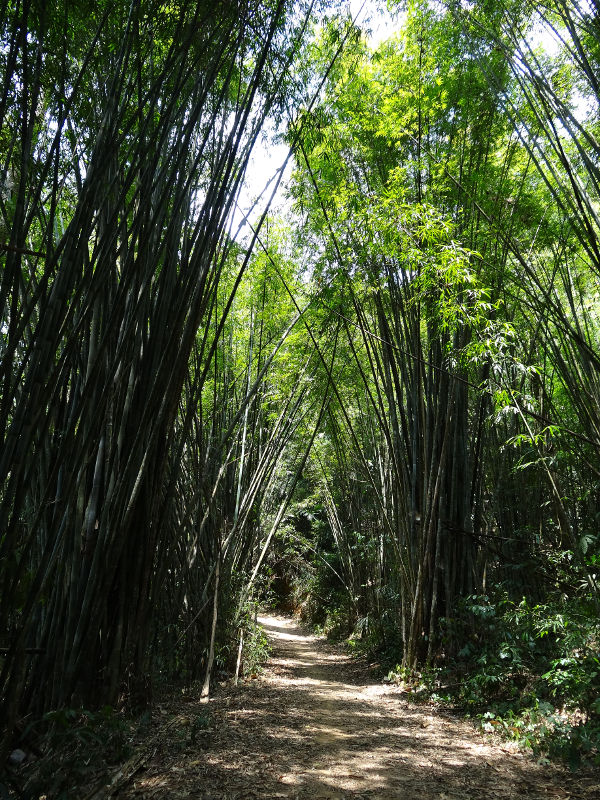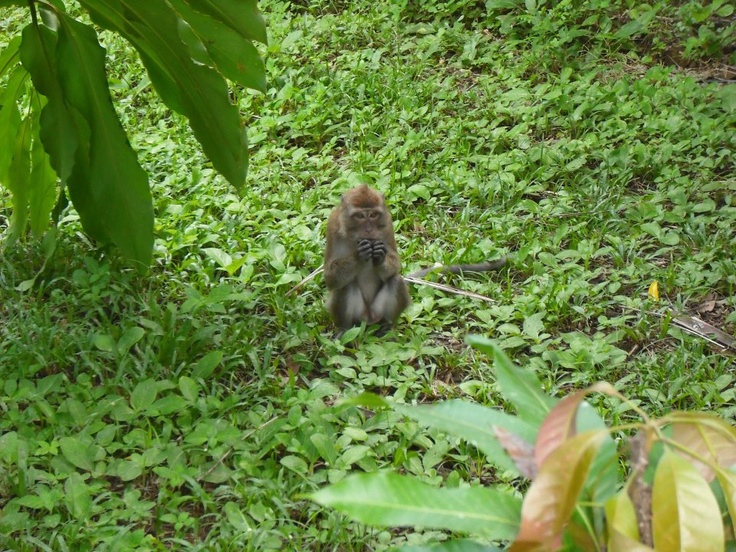Monkey Business in Thailand
Thailand is full of wild, hairy animals. If you’ve ever visited Kaosan road you know what I’m talking about. No, no, seriously, there are all kinds of strange beasts crawling, climbing, hopping, flying and otherwise skulking about the country’s dense forested regions.
There are actually quite a few different kinds of primate going about their own business in their own societies within the kingdom, some quite common and some quite rare, and all of them amazing.
The three types of primate native to Thailand are gibbons, macaques, and langurs and of each there are several subspecies inhabiting different regions of the country.

The two national parks best known for having apes and monkeys running and swinging around are Khao Yai in the center of the country, not too far from Bangkok, and Khao Sok in the south in Surat Thani (not far from Koh Samui and Phuket).
Read more: https://www.bangkokbeyond.com/blog/khao-yai-national-park
These are great places to spend a night and hear these things hoot at the moon and the rising sun, and maybe catch sight of one in the wild, going about its monkey business, but there are lots of interesting ways to get up close and personal with the primates.
One of the most interesting I’ve seen is trying to get more coconuts out of a tree than one of these southern macaques (the crab eating macaque). My friend made a few videos for the Koh Samui tourist info television network of people engaging in this race (I was invited but was still recovering from an operation at the time).
Basically, you’re given a long, hooked stick which you use to try and grab coconuts out of this tree. There is another tree beside your tree and in that tree they put a monkey. The monkey runs up and down the thing like a manic squirrel, bringing coconuts back down with him every time. Of course nobody ever wins this challenge, but everyone has a good time trying.
Of course there is a lot of unwholesome use of primates in both the pet and tourism trades, but it’s important not to throw the baby out with the bathwater when trying to boycott unethical treatment of animals. Monkeys have held menial positions in agricultural and fishing outfits since the dark before the dawn, all the way back through the written record.
And there’s no reason for us to suspect that a monkey who fetches coconuts or other things out of trees doesn’t feel adequately compensated by whoever has him employed in this way.

I brought up the illegal pet trade to segue into the Gibbon Rescue Project Khao Sok, where they take in lower primates who’ve been mistreated by “higher” primates, nurse them back to physical and psychological health, then turn them loose in the Khao Sok national park where they can get back to doing whatever it is they get up to in the deep forest there.
Most of the gibbons here. I’m a big fan of trying for a wild sighting of animals and birds when at all possible, but there are no guarantees in the wild unless it may be the profound sense of peace and calm one experiences when unable to hear phones, or cars or plumbing. And there is nothing in the world more moral than a monkey halfway-house.
If you are planning on going one of these parks, you can hire a car and driver in Bangkok for your comfort and flexibility.

